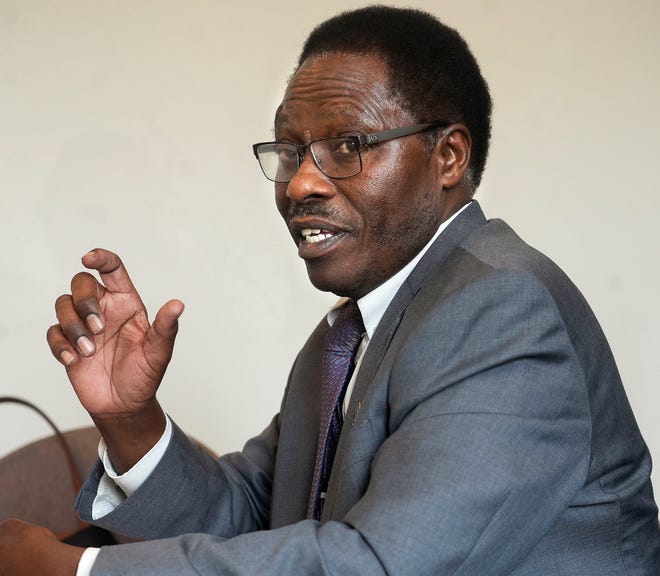For eight years, the Ssempijjas continued their work as they developed a new practice, often seeing clients in the evenings to fulfill their busy schedules. Sebastian even visited families’ homes to check on them.
In 1998, they left their other jobs and opened the Sebastian Family Psychology Practice.
(The) clinic is actively involved with all the communities where people come from, said Fred Coleman, a clinic partner of 20 years and a psychiatrist on the clinical faculty at the University of Wisconsin-Madison.
Refugees, immigrants and other minority groups “know the clinic not as an office you go to, but as where the Sebastian family connects with their community.
The clinic uses a healing model that places special emphasis not only on a client’s biological and psychosocial elements and their health, but also on their culture, language, and spiritual and economic background, Sebastian said.
The clinic “is as close as we get to each of these communities having their own mental health practice,” Coleman said.
The practice can provide services in up to 20 languages, with hired staff speaking 13. The clinic hires translators and interpreters for the other seven.
Being able to meet the customer where they are, in their language, has brought us a lot of trust and confidence, added Sebastian.
It’s as close as each of these communities can get to having their own mental health practice in their community, Coleman said of the clinic.
The experience of Sebastian and Yvonnes who came to Milwaukee from Uganda informed that pattern.
We may not have experienced the trauma or what they went through, said Yvonne Ssemipjja of the clinics’ clientele. But as an immigrant, we all have the same story. The story may have variations, but the story of an immigrant is almost the same.
At the clinic, it’s critical to approach community care for immigrants and refugees from both a local and a global perspective, said her husband, who calls himself “Dr. Sebastian” to all of his patients.
They have many needs and talents that lead us, he continued. To understand them well, we also need to be aware of what is happening in their countries.
Locally, the firm has longstanding ties and partnerships with city, county, and state agencies, including Madison Public Schools, the Milwaukee County Behavioral Health Division, and several refugee support organizations. Personal connections to spiritual leaders and cultural groups are also key, Sebastian said.
Knowing where (clients) come from in terms of cultural beliefs, practices they trust becomes so crucial, he noted.
They teach the next generation of suppliers
The Ssmepijjas, who have four children, are involved in many other activities, from literacy campaigns to helping Ugandan grandmothers who have to raise children because their parents died of AIDS.
Their long-term goal with the clinic is to destigmatize mental health while also training the next generation of culturally attuned mental health professionals.
When we’re ready to go, who else will carry the torch? Who will continue to provide services? Yvonne said.
Working with the Medical College of Wisconsin, Marquette, and other institutions, Ssempijjas’ clinic has sought to build a diverse learning collective. And, again, it was the influence of an elder who gave them a mission.
Two days before Sebastian’s father died in October 2011, he asked his son and daughter-in-law something. Yvonne’s father had said much the same thing before her death.
“The work (you) do in America, Sebastian’s father told them. Do it for Africa.
With this inspiration, the clinic became involved with the Uganda Behavioral Health Alliance, a non-profit organization founded in 2009 that focuses on improving visibility and access to mental health in East Africa. Through work with the Alliance, the Ssempijjas and collaborators such as Coleman have trained more than 1,000 suppliers.
Sebastian emphasized the importance of preparing providers to have the training and cultural capacity to contribute to global healing.
Mental health is not just a local problem, he added. It’s a global problem.
